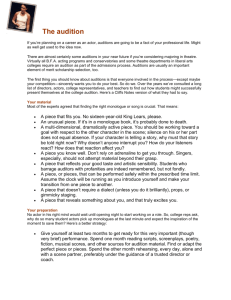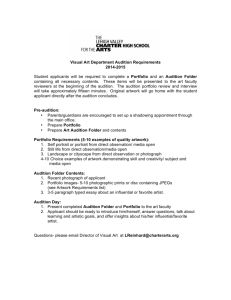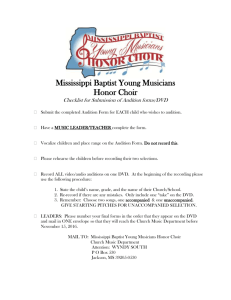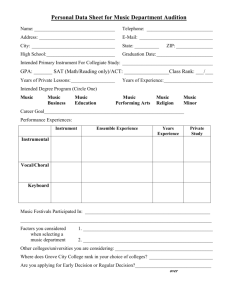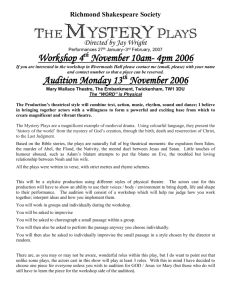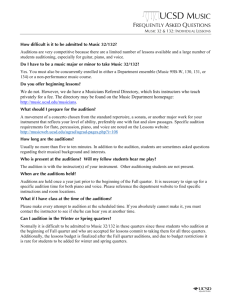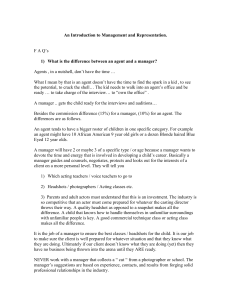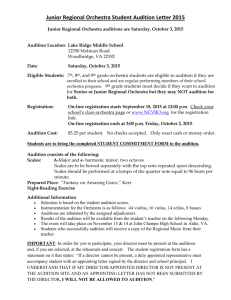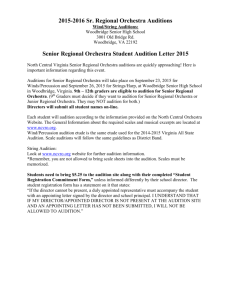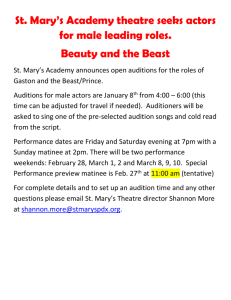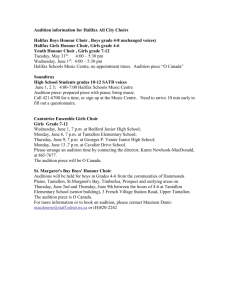Tips from the College Office for Arts/Performing Arts Applicants
advertisement
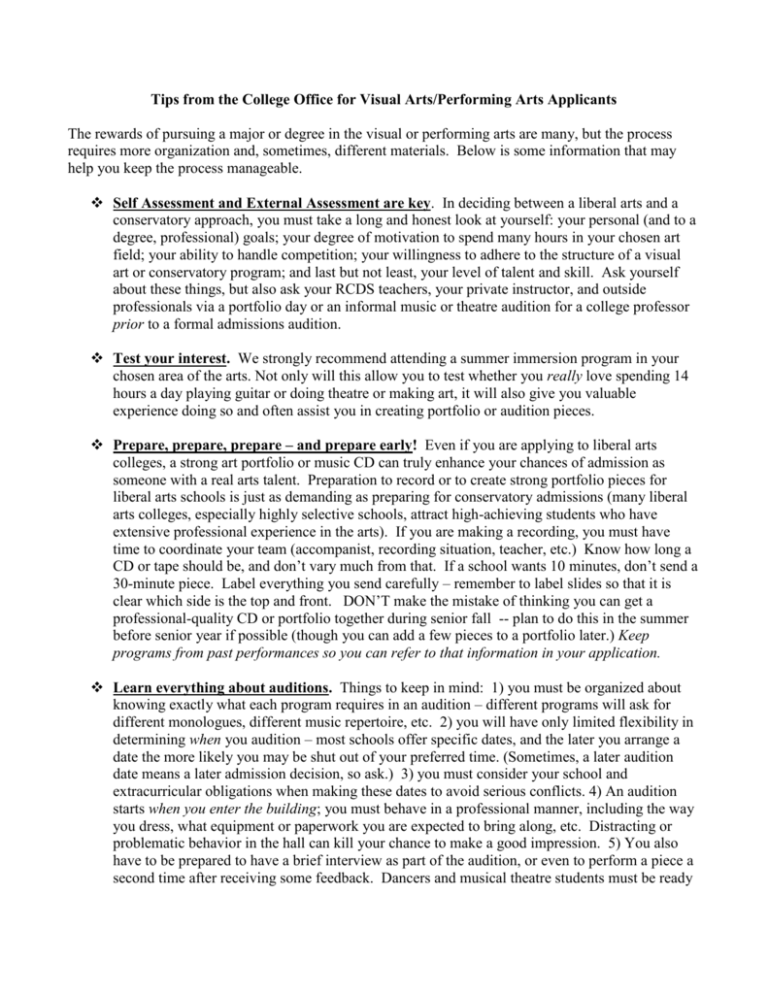
Tips from the College Office for Visual Arts/Performing Arts Applicants The rewards of pursuing a major or degree in the visual or performing arts are many, but the process requires more organization and, sometimes, different materials. Below is some information that may help you keep the process manageable. Self Assessment and External Assessment are key. In deciding between a liberal arts and a conservatory approach, you must take a long and honest look at yourself: your personal (and to a degree, professional) goals; your degree of motivation to spend many hours in your chosen art field; your ability to handle competition; your willingness to adhere to the structure of a visual art or conservatory program; and last but not least, your level of talent and skill. Ask yourself about these things, but also ask your RCDS teachers, your private instructor, and outside professionals via a portfolio day or an informal music or theatre audition for a college professor prior to a formal admissions audition. Test your interest. We strongly recommend attending a summer immersion program in your chosen area of the arts. Not only will this allow you to test whether you really love spending 14 hours a day playing guitar or doing theatre or making art, it will also give you valuable experience doing so and often assist you in creating portfolio or audition pieces. Prepare, prepare, prepare – and prepare early! Even if you are applying to liberal arts colleges, a strong art portfolio or music CD can truly enhance your chances of admission as someone with a real arts talent. Preparation to record or to create strong portfolio pieces for liberal arts schools is just as demanding as preparing for conservatory admissions (many liberal arts colleges, especially highly selective schools, attract high-achieving students who have extensive professional experience in the arts). If you are making a recording, you must have time to coordinate your team (accompanist, recording situation, teacher, etc.) Know how long a CD or tape should be, and don’t vary much from that. If a school wants 10 minutes, don’t send a 30-minute piece. Label everything you send carefully – remember to label slides so that it is clear which side is the top and front. DON’T make the mistake of thinking you can get a professional-quality CD or portfolio together during senior fall -- plan to do this in the summer before senior year if possible (though you can add a few pieces to a portfolio later.) Keep programs from past performances so you can refer to that information in your application. Learn everything about auditions. Things to keep in mind: 1) you must be organized about knowing exactly what each program requires in an audition – different programs will ask for different monologues, different music repertoire, etc. 2) you will have only limited flexibility in determining when you audition – most schools offer specific dates, and the later you arrange a date the more likely you may be shut out of your preferred time. (Sometimes, a later audition date means a later admission decision, so ask.) 3) you must consider your school and extracurricular obligations when making these dates to avoid serious conflicts. 4) An audition starts when you enter the building; you must behave in a professional manner, including the way you dress, what equipment or paperwork you are expected to bring along, etc. Distracting or problematic behavior in the hall can kill your chance to make a good impression. 5) You also have to be prepared to have a brief interview as part of the audition, or even to perform a piece a second time after receiving some feedback. Dancers and musical theatre students must be ready to take one or more dance classes and have all appropriate footwear and clothing. NO gum chewing, ever. Remember that the application process is different for conservatories (or art schools). The deadlines for submission of work, for applications, and for auditions may be different from the “usual” deadlines of college admission; don’t assume these schools follow the same calendar. Early decision may not be an option for a conservatory program – or it may not be a good idea even if offered. If a school requires pre-screening of a tape/cd or portfolio, those deadlines may be earlier than the application deadline. If they offer regional auditions, you may need to audition earlier than you expect in order to take advantage of a local audition. If you are offered an on-campus audition, you’ll need to arrange travel. You will probably still need to submit official test scores and transcripts, but in some cases the decision may rest primarily on the quality of your arts submission. Notification may also follow a different calendar. Again, you have to stay organized to be sure you don’t miss a crucial requirement or deadline along the way.
